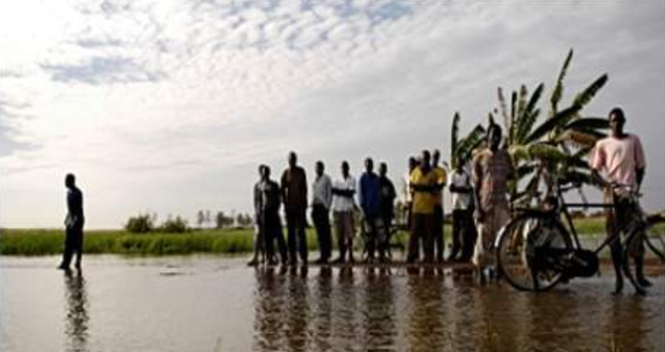
In April 2011, the African Union invited over 60 experts to its headquarters in Addis Ababa to consult them on the draft version of the AU’s Humanitarian Policy Framework. The participants included representatives of member states, regional economic organisations, civil society, NGOs and other humanitarian actors. The IFRC was amongst the invitees, and was represented by Mr. Stephen Omollo, Head of the Humanitarian Diplomacy Unit of the Africa Zone Office. The IFRC’s contribution included an introduction to IDRL to the expert audience present. It was the first time IDRL was officially presented in a continent-wide AU meeting.
What is the Humanitarian Policy Framework?
The Draft Framework provides for a set of principles for humanitarian action, and will form the basis for an AU Humanitarian Policy in the future. It calls for the establishment of an effective coordination mechanism for humanitarian operations on the African continent, ranging from situations of armed conflict to natural and man-made disasters. It situates the African Union Commission as a prime institution to provide technical and material support to its Member States in situations of humanitarian crises. With regard to disasters, the Framework advocates for appropriate training in emergency response on the national level, establishment of an early warning and monitoring system and the establishment of a database of experts in different areas of disaster management. The development of a Humanitarian Policy Framework is premised on the Strategic plan for the African Union Commission for 2009-2012.
IDRL in the Humanitarian Policy Framework
The IFRC was given the opportunity to provide extensive feedback on the draft Humanitarian Policy Framework, which it did mainly from the perspective of the IDRL Guidelines - which are designed especially to serve as a tool preparing a framework for the facilitation of international disaster response. Hence, a recommendation was made for the policy to promote greater Member State legal preparedness to overcome common regulatory barriers to effective cross-border disaster assistance. Another recommendation concerned strengthening partnership and dialogue between Member States and domestic civil society organizations active in humanitarian action, including through development of the auxiliary role of National Red Cross and Red Crescent Societies. This feedback was welcomed and accepted by the AU Commission; the IFRC’s suggestions were integrated in the draft Humanitarian Policy Framework, which is to be presented for endorsement by the Heads of State Summit later this year.
As a result of the IFRC’s input and participation in the meeting, the IFRC was unanimously elected to take a seat on the Sub-Committee in charge of finalising the Draft Policy into a final document and leading the process of adoption of the Humanitarian Policy Framework.